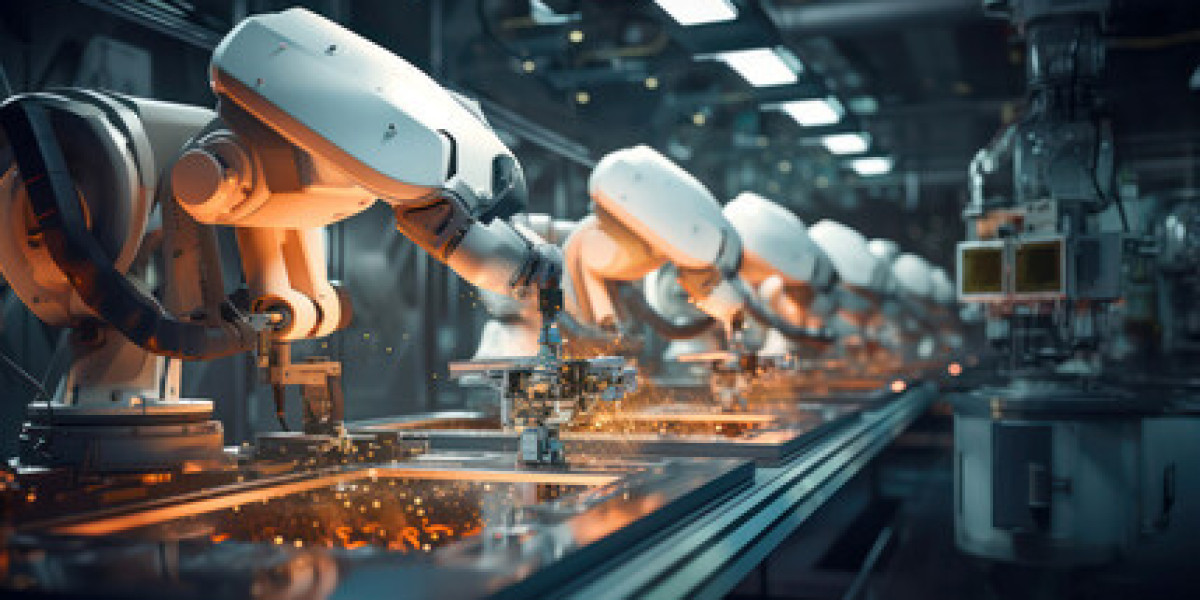Automated Precision: The Future of Industrial Robotics
Introduction
Welcome to a discussion on the future of industrial robotics and the role of automated precision in shaping manufacturing processes. In this article, we will explore how advancements in robotics technology are driving automation to new levels of precision, efficiency, and versatility.
Outline
- Understanding Industrial Robotics
- The Evolution of Automation
- Automated Precision: Key Concepts and Technologies
- Applications and Impact
- Challenges and Future Directions
- Conclusion
- FAQS
Background
Industrial robotics has undergone significant advancements since its inception, transforming the way products are manufactured across industries. Understanding the background of industrial robotics sets the stage for exploring its future trajectory.
Understanding Industrial Robotics
Industrial robots are programmable machines designed to perform a variety of tasks with speed, accuracy, and repeatability. They are equipped with sensors, actuators, and controllers that enable them to execute tasks such as assembly, welding, painting, and material handling.
The Evolution of Automation
Automation has evolved from simple mechanization to sophisticated robotics and artificial intelligence (AI)-driven systems. The integration of advanced technologies such as machine learning, computer vision, and sensor fusion has enabled robots to perform increasingly complex tasks with greater precision and adaptability.
Automated Precision: Key Concepts and Technologies
Automated precision refers to the ability of robotic systems to perform tasks with high accuracy and consistency without human intervention. Key technologies driving automated precision include:
- Advanced sensors for real-time feedback and error correction.
- High-precision actuators and manipulators for precise motion control.
- AI algorithms for predictive maintenance, task optimization, and adaptive control.
- Integration with other smart technologies such as Internet of Things (IoT) and cloud computing for data-driven decision-making.
Applications and Impact
Automated precision has wide-ranging applications across industries, including automotive manufacturing, electronics assembly, healthcare, logistics, and beyond. The impact of automated precision is seen in increased productivity, improved product quality, reduced cycle times, and enhanced safety in manufacturing environments.
Challenges and Future Directions
Despite its benefits, automated precision poses challenges such as high initial costs, complexity in system integration, and the need for skilled personnel. Addressing these challenges requires collaboration between industry, academia, and government to drive innovation, develop standards, and promote workforce development.
Conclusion
The future of industrial robotics is characterized by automated precision, where robots seamlessly integrate into manufacturing processes to deliver consistent, high-quality results. By embracing advanced technologies and addressing challenges, manufacturers can unlock new opportunities for efficiency, competitiveness, and innovation.
FAQS
Q: What are some examples of industries benefiting from automated precision?
A: Industries such as automotive manufacturing, electronics assembly, pharmaceuticals, and aerospace are among those benefiting from automated precision in robotics.
Q: How does automated precision contribute to product quality?
A: Automated precision ensures consistent and accurate execution of manufacturing processes, leading to fewer defects, higher product quality, and greater customer satisfaction.
Q: What role does AI play in automated precision?
A: AI enables robots to learn from data, adapt to changing conditions, and optimize performance over time, thereby enhancing precision, efficiency, and autonomy in manufacturing operations.















